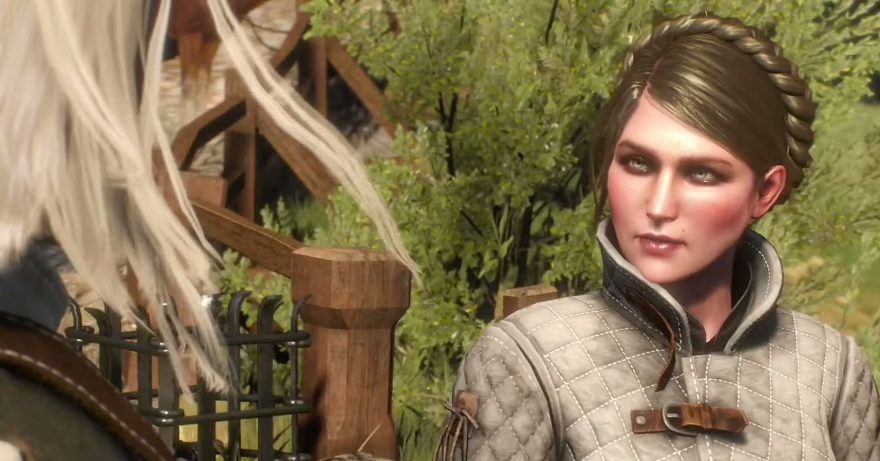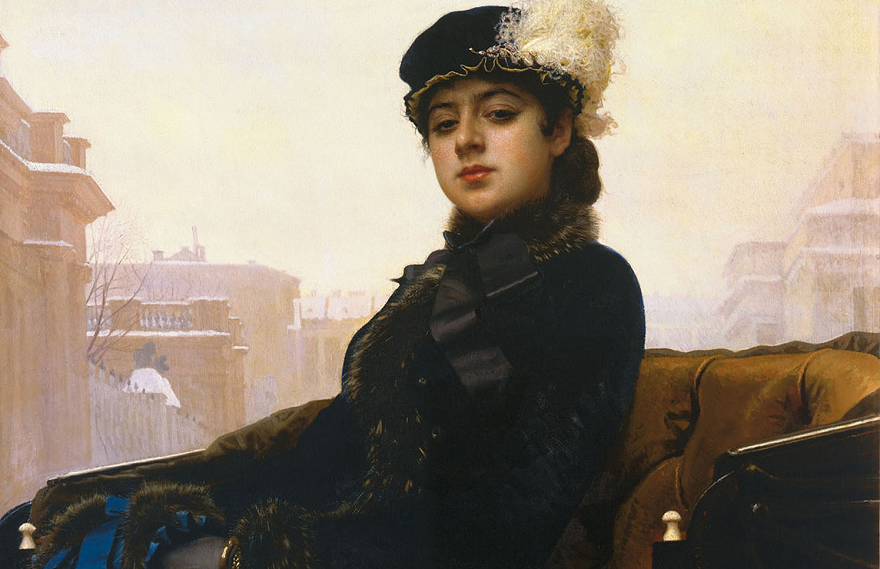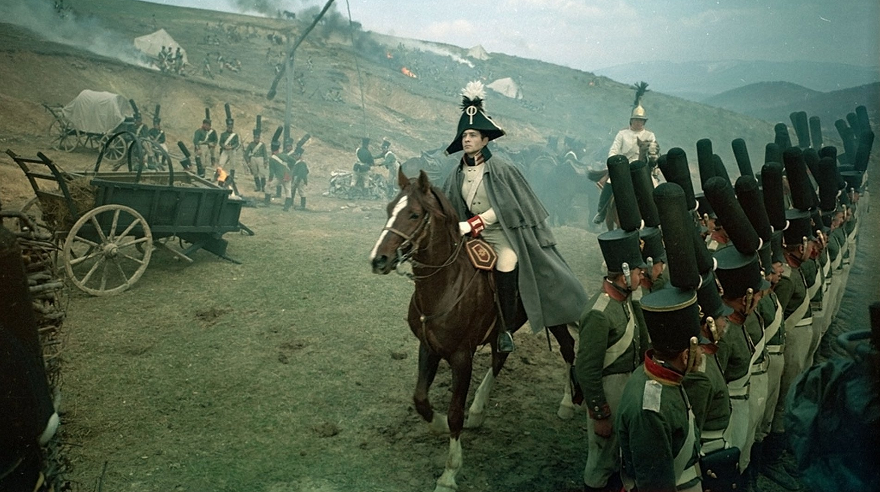Despite its complex lore and extensive source material, the premise of The Witcher 3 is strikingly simple: Find Ciri. Give the game a few hours, though, and it quickly buries its “save the girl” throughline under a heaping mess of other plot points, branching off into a thousand different directions like the tendrils of a lightning bolt. What begins as a simple rescue mission trickles down into pulpy sub-stories that flesh out everything from family dramas, to political intrigue, to military strife, and even some high romance.
In one particularly divergent quest tree, the monster-hunter protagonist Geralt comes across the path of an old friend, Dandelion, who was apparently the last to encounter Ciri. But Dandelion has also gone missing—just our luck—and Geralt discovers that the only way to find him will be to rendezvous with and interrogate his most recent romantic interests. This leads us to Rosa Var Attre, a young bourgeois woman who agrees to share details about Dandelion if Geralt will indulge her in a quick fencing match. One swordfight later, and Geralt finally has the information he needs to help find Dandelion. But instead of simply sending him on his way, Var Attre has another request: She’d like Geralt to come meet with her again so he can teach her more about handling a sword.
Having moved substantially far enough from the main plot for an inconsequential fencing lesson to sound worthwhile, The Witcher 3 also makes the implication that a relationship with Var Attre will yield something important, like a nice new weapon, a batch of juicy experience points, or maybe even a new set of romance quests—which, while cheesy, are often goofily, entertainingly so.
Lo and behold, the quest concludes with a big middle finger to convention, and refuses to reward the player with any of those things. Instead, after a quick fencing lesson, Var Attre says something that apparently offends Geralt, who cuts off their acquaintance right then and there. Rosa Var Attre is never again featured in The Witcher 3.
After finishing this sequence, I immediately took to the forums to determine whether I’d chosen an incorrect dialogue option to end the questline this way. But after a few minutes of clicking through the many threads on this particular sidequest (apparently a significant number of other players had had a similar reaction), I discovered that this is indeed the only way that the Var Attre relationship can conclude.

“Seems unsatisfying to end things like this with a semi-interesting character,” said one user over at the GameFAQs forums, and there were similar reactions pretty much everywhere I looked. Why set up such a compelling character and questline, only to throw her out as the result of one unfavorable interaction?
The Witcher 3 isn’t the first work to throw its audience into dead-end sideroads for reasons that initially seem suspect: In Narrative and Freedom, the literary critic and Slavist Gary Morson describes a literary technique he calls “sideshadowing,” where an author fills their work with moments of seeming insignificance in order to conjure a literary world of “possibilities that could have happened even if they did not.” To Morson, the masters of sideshadowing were Leo Tolstoy and Fyodor Dostoevsky, who were known for granting lavish descriptions to characters with seemingly no influence on the plot, and who would dedicate entire chapters to recreational wolf hunts and descriptive mowing scenes.
The inclusion of these “purposeless” side-sequences in Tolstoy and Dostoevsky’s work can certainly read as pretentious fluff, but narrative sideshadowing works because in real life, as in their literature, there’s no actual structure:
In Great Expectations, Pip gives a pie to a convict, and the reader assumes that this apparently inconsequential event will in fact be consequential… We do not expect our daily donations to be Dickensian pies. In novels, when bread is cast upon the waters, it comes back manifold, but in life it often just drifts away. (613)
By building a sense of structurelessness into their books, Tolstoy and Dostoevsky create realms where all contingent possibilities are theoretically open. Since everything in Great Expectations is bound by traditional literary structure, Pip is always destined to come into wealth. But nobody in Anna Karenina is destined to do anything. This allows us—indeed, it encourages us—to interpret and question the events that actually do come to pass.

On paper, videogames’ biggest strength is that they come standard with a narrative openness that Tolstoy and Dostoevsky had to delicately piece together themselves. But in practice, videogames have struggled to develop narratives where it feels like anything can happen.
The “open-world” genre, for instance, with its massive Skyrims and Dragon Ages, has long prided itself on providing players with something resembling authentic choice. But even though we can pluck our way through the dialogue trees of Mass Effect or align ourselves with the many factions of the Elder Scrolls series, the narrative crux of these games always feels Dickensian: when “Clementine will remember that”, we are told so explicitly. This might be why the eventual conclusion of the Mass Effect series felt constraining to so many who played it: because players believed their branching storylines would culminate in a truly unique final outcome, they were shocked—even offended—to reach a climax that funneled them into a definitive, conveniently color-coded set of endpoints.
But look closer, and the truth of the matter is that even prior to its conclusion, Mass Effect never behaved like an open narrative structure to begin with. The fact that the universe would only ever end in a flash of red or blue (or green) light was never inconsistent with a story whose binary structure could only cast its characters as either Paragons or Renegades. Whatever nuance the series may have flirted with in its finest moments was always tied to moral pontification, and always tightly secured to larger statements about the (one or two) possible outcomes of ethical quandaries.
There’s a big difference between offering players the ability to choose between a few dialogue options, and creating a world in which the realm of possibilities feels genuinely open. The former can still take place within a closed narrative structure, while an open-ended world can only be achieved with techniques like sideshadowing.
The Witcher 3 is certainly not without its own narrative flaws—it’s more Game of Thrones than Gormenghast—but it achieves a sense of openness that’s absent in so many other self-proclaimed open worlds. Dandelion’s quest line, like many others in the game, is a hydra: finish off one portion of the mission, and five more sidequests pop up. Some, like the Var Attre branch, seem to go places, but are abruptly decapitated as a matter of circumstance. Sometimes a fencing lesson is just a fencing lesson.

After a while, the proceedings in The Witcher 3 become so varied and so impossibly oblique that the entire game starts to take on an overwhelming, insurmountable quality. With the main quest so hopelessly lost in the dense forest of possibilities, I found myself asking—on multiple occasions—what the hell I was doing; what steps I had taken to get where I’d ended up; what kind of ungodly hours CD Projekt RED must have worked to create such a fleshed-out universe. Geralt is a protagonist, yes, but within the staggering scope of The Witcher 3 he never feels like more than one minuscule node in an astronomical narrative grid.
It’s worth noting that narrative sideshadowing is always just an illusion; War and Peace, after all, only has one ending. The more important idea is that the works of Tolstoy and Dostoevsky can make us feel like anything can happen, so that when Anna Karenina suddenly brings about her own demise, we’re left to pick up the pieces in the aftermath. Maybe her death was an act of vengeance or anger or confusion, or maybe it holds no further meaning at all. It’s not as inviting or reassuring as Dickens’ cathartic resolutions, but as they say: that’s life.
///
There’s a well-known passage in George Eliot’s Middlemarch that gives context to the idea of life as an open construct, portraying the realm of possibilities as a large and scratched-up mirror. But place a candle at the center of that surface, and some order emerges: “It is demonstrable that the scratches are going everywhere impartially and it is only your candle which produces the flattering illusion of a concentric arrangement, its light falling with an exclusive optical selection.”
With all of its orderlessness and scattered possibilities, life makes no sense except in the presence of a central illuminator. In the case of Anna Karenina or War and Peace, that figure is the reader, who interprets and contextualizes the plot in terms of his or her own life experience. In The Witcher 3, it’s the player, who is also left to ponder the implications of every dangling plot thread and every micro-story’s spontaneous end. The fact that Rosa Var Attre can come across as either a missed opportunity for intimacy or an independently acting agent with opinions that differ from our character’s speaks volumes to the The Witcher 3‘s storytelling chops. That it might also mean nothing says more about us and our relationship with its world than most other role-playing games can muster over the course of an entire series.
